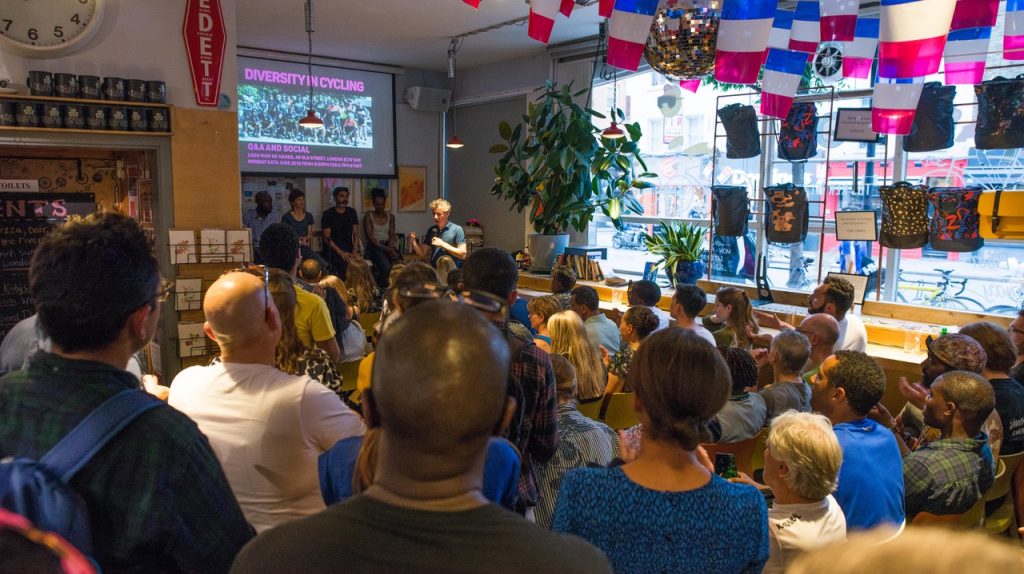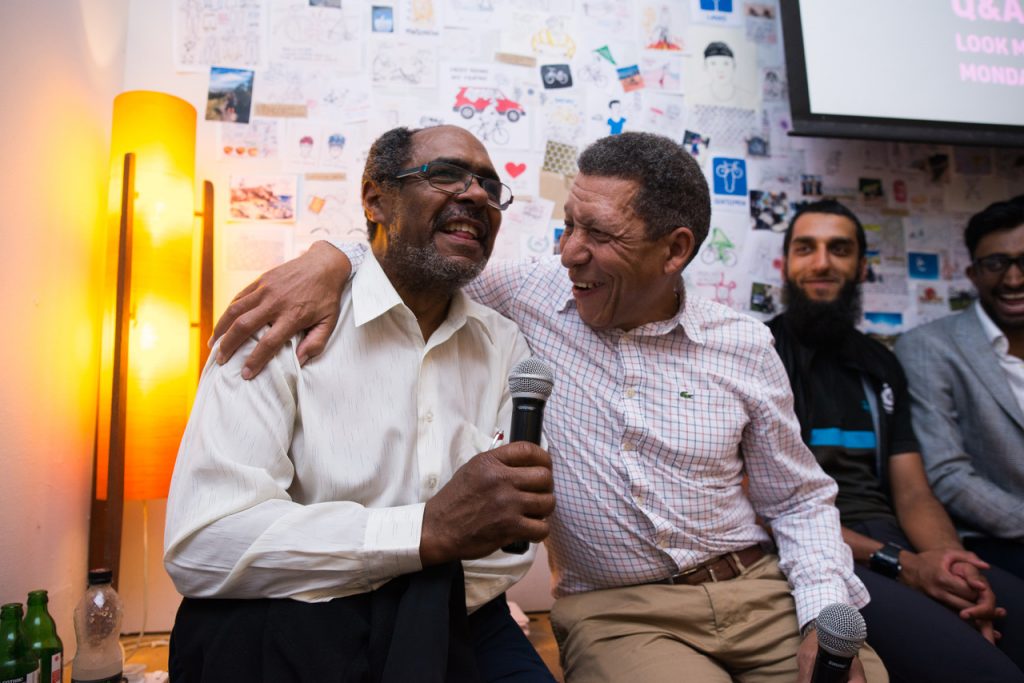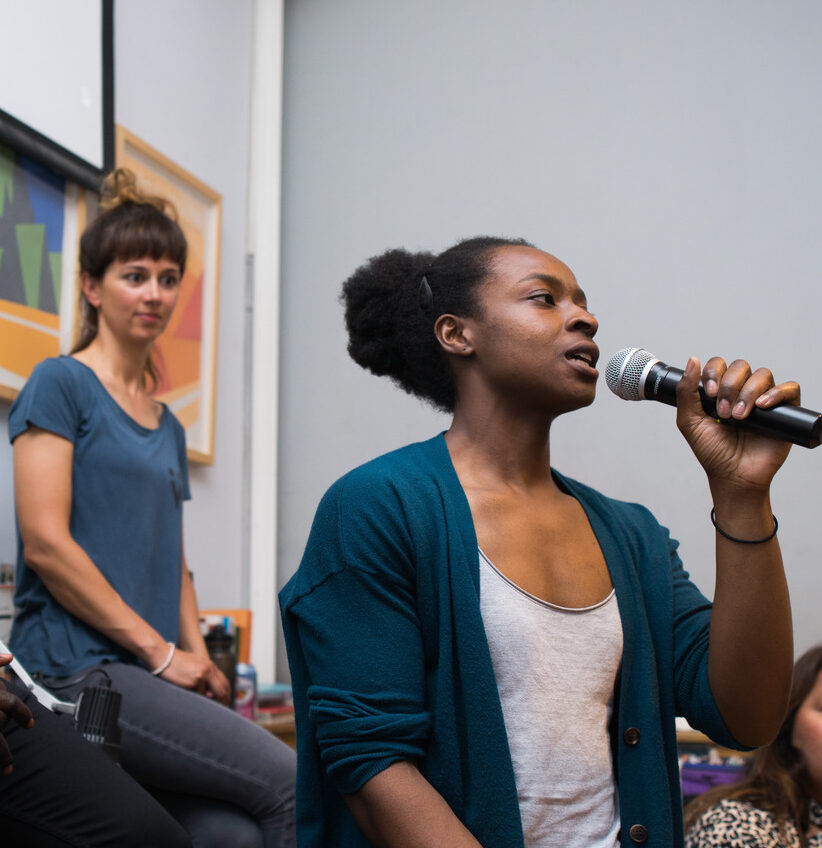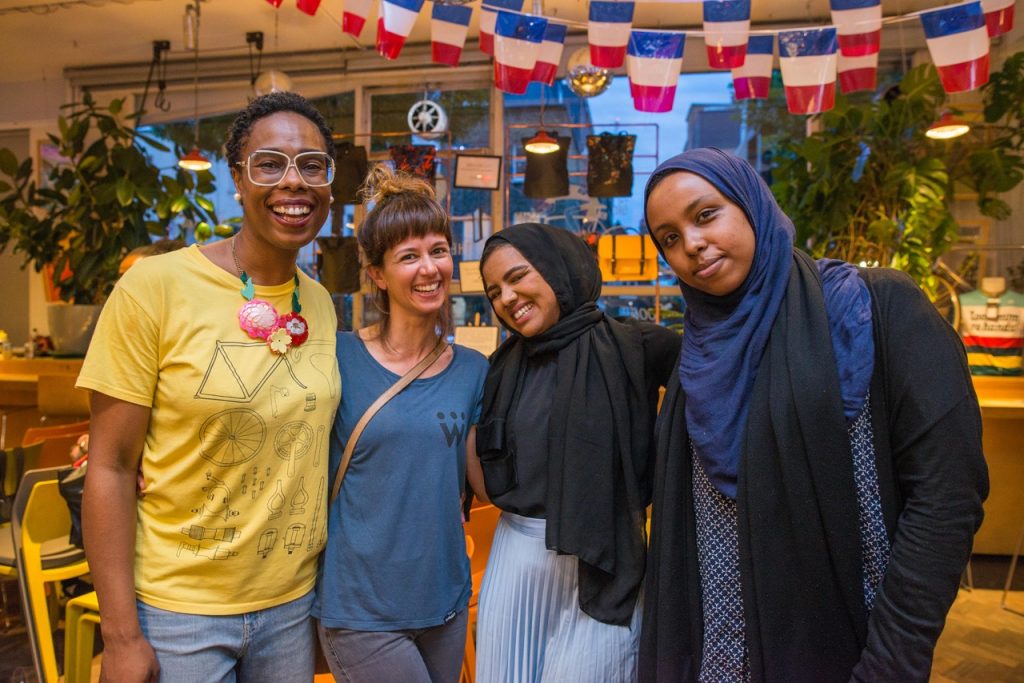This project started as a conversation, centred around an observation: more people from Black, Asian And Minority Ethnic backgrounds seem to be taking up cycling as a sport, but not necessarily joining cycling clubs. Overall, the sport of cycling looks very white.
That conversation led to more conversations which snowballed into my writing “DIVERSITY IN CYCLING”. Originally the aim was to produce a brief discussion paper for my own club, Kingston Wheelers, but very quickly the report gained momentum, attracting over 60 contributions from riders of Black, Asian and Minority Ethnic backgrounds, including a number of Muslim riders, and securing the support of British Cycling, thanks to Comms Executive Chidi Onuoha, who mobilised the support of our governing body, including securing a Foreword from its CEO Julie Harrington.
You can read more about British Cycling’s involvement here and read the report itself here.
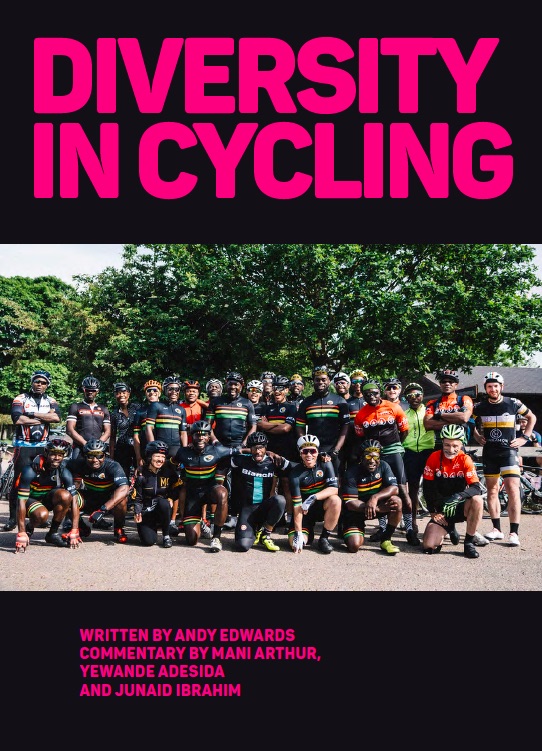
Fundamentally, cycling is a sport anyone can enjoy and it is actually more accessible than many people perceive. The report details challenges, but there is lots of positivity too. Key themes revolved around representation and visibility, if cycling is seen to be diverse it will attract a more diverse pool of riders. Telling more than one story is important. The media often seen obsessed with the narrative that cycling is a hobby for middle class middle age white guys when the reality is that cycling is so much more and the “MAMIL” phenomenon is actually quite recent. Key recommendations in the report include:
PROMOTE VISIBILITY (BUT BE AUTHENTIC)
If your club has members from Black, Asian and Minority Ethnic backgrounds, with their permission, include those members in any visual representation of club membership. This helps make participation visible to others; consider deploying ambassadors as a point of contact.
If you do not have many Black, Asian and Minority Ethnic members or none at all, do not try to be something that you are not, but do promote your values: if you are open to all newcomers regardless of race and gender say so. We all have to start somewhere, but let’s make a start.
PROMOTE ACCESSIBILITY
Many larger clubs have different rides across the week with different start times. Not everyone can make 9am on a Sunday morning. Promote a range of options. Provide context to cycling club culture, what it means to be in a club, to ride in a group and general dos and don’ts.
BE INCLUSIVE
Inclusion is essential to diversity. It is not just about having Black, Asian and Minority Ethnic riders present but ensuring riders of all backgrounds feel included and visible. Work with others both within your club and the broader community to share knowledge and promote pathways.
TELL MORE THAN ONE STORY
Challenge stereotypes that cycling is the preserve of middle-aged middle class men in Lycra. It is not. Cycling in the UK and Europe has been traditionally a rural and working class sport that has grown so much its appeal is universal. Cycling is for everyone.
RAISE YOUR OWN RACIAL AWARENESS
Many white people are uncomfortable talking about race. That is because most of us are not equipped to have the conversation. Read, listen and learn. If one person stands out in a group, be aware they may feel an extra level of intimidation than any other newcomer.
MONITOR PROGRESS
Quantify your membership through capturing ethnicity data on joining/ renewal forms. Monitor progress over time. Larger clubs and organisations should certainly do this.

